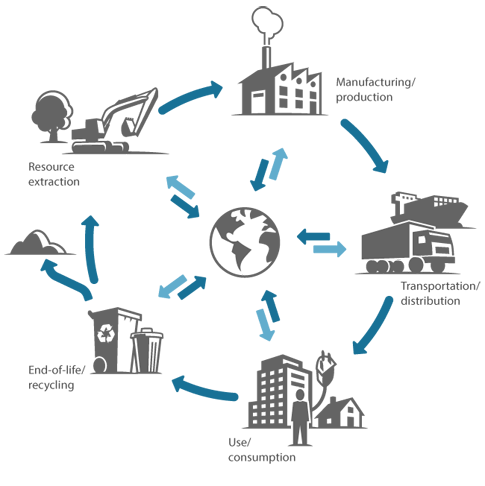Retrofit existing housing stock
Last updated on April 23, 2022
Life Cycle Analysis
Net-zero buildings are important, but focusing only on future emissions misses the huge carbon costs of creating them.

When you look at all the carbon emitted over a building’s life cycle studies show that [2]https://living-future.org/wp-content/uploads/2016/11/The_Greenest_Building.pdf:
- Retrofitting existing buildings is better for the climate than replacing them with more energy efficient buildings.
- It can take 10-80 years of superior operating efficiency to make up for all the carbon emitted during component creation and construction.
Retrofits
Planning to do better in the future is not enough. We must also correct the greenhouse gas emitting mistakes of the past.
In Waterloo Region, buildings and building construction contribute 45% of all greenhouse gas emissions.

We need to retrofit existing residential and commercial buildings.
Demolitions must make climate sense
- Demolishing an existing building to replace it with a similar size building creates a 10-80 year carbon emissions debt, even if the replacement building operates more efficiently.
- We should prohibit demolitions which harm our climate future.
- Demolition permitted only if there is a net per capita benefit, e.g. replacement building houses more people than building being demolished.
For More Information
Please see: Retrofit Buildings.pdf
For the complete documentation package, please see the Documentation.pdf